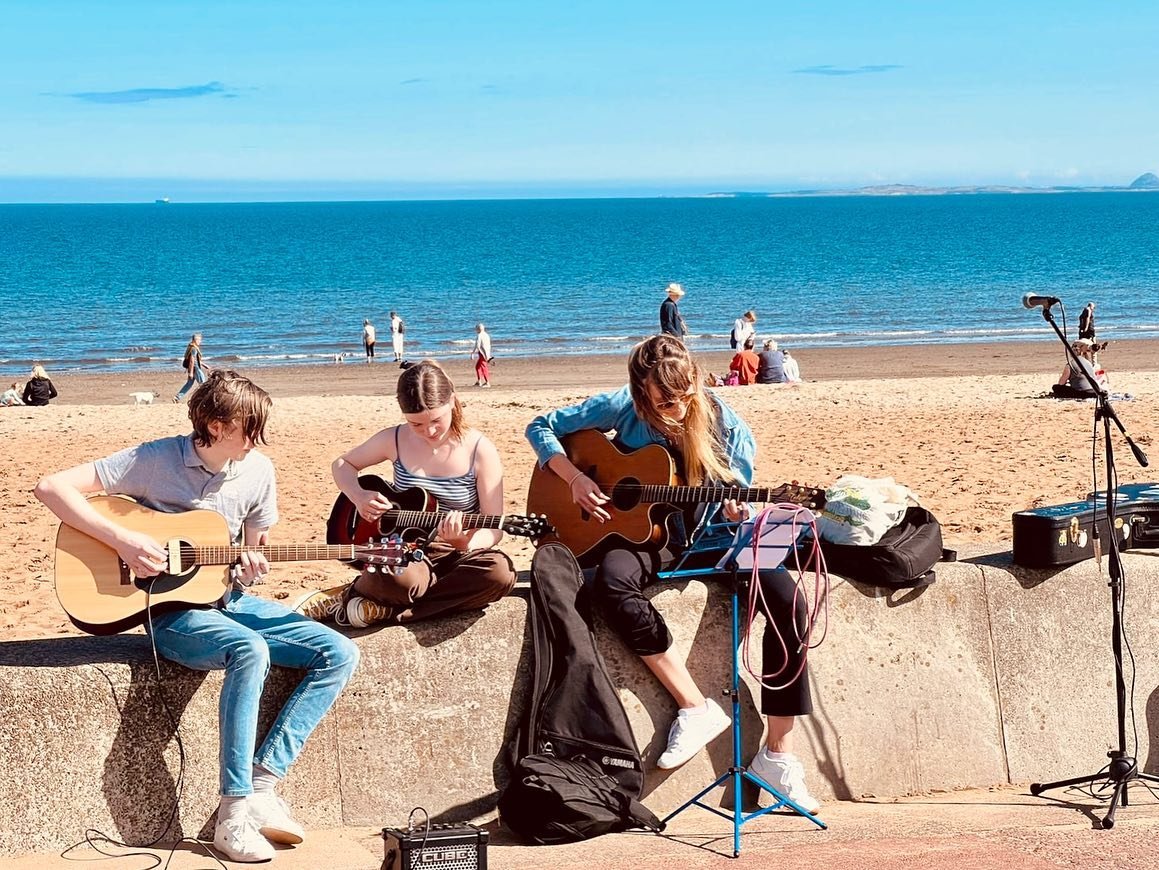There’s a common misconception that it takes months of guitar lessons before you have enough skill to play in a band. The truth is, you can play in bands once you know a handful of chords and can play in time. Playing with others is enormous fun, and it’s a great feeling to entertain people with your skills. So how can you approach new band situations and make a great impression, while also identifying if it's a good fit for you? Here’s what to do.
In This Article
Never Miss a Beat
Make sure you're 100% ready for showtime! Get our FREE Ultimate Pre-Gig Checklist and never forget essential gear, prep, or performance details again.

1. Understand the Band's Dynamics
Before anything else, learn how the band works. This isn't just about who plays which instrument. Who coordinates arrangements and makes decisions? Is there a musical director, or is it a collective? Knowing who handles communication for rehearsals and gigs will help you navigate the group smoothly.
2. Master the Art of Feedback
A healthy band thrives on constructive feedback. The rehearsal space should be a place where everyone feels comfortable offering suggestions to improve the performance. The key is to be specific. Instead of saying, “This song is boring,” try, “I’d love to hear this song with more dynamic contrast.”
3. Clarify Your Role and Expectations
Clarify what your bandmates are looking for. Do they want you to play existing guitar parts exactly as they are? Or do they want you to create your own parts and bring new songs to the band? Understanding your role from the start prevents misunderstandings and ensures everyone is on the same page.
4. Know the Band's Culture
Every band has its own culture. Some use rehearsal time to learn songs from scratch, while others expect you to learn your parts at home. A great way to be an asset is to come prepared. Learning songs at home allows the band to use rehearsal time to work on performance, dynamics, and stage presence—things you can't practice effectively alone.

5. Quick Tips for Your First Rehearsal
Recording the last half hour of practice is a great way to get a better picture of the band's dynamics and sound. It helps you analyze the flow of the setlist and identify where the energy needs to shift. Also, focus on getting a good sound balance. If the vocalist has to fight to be heard over the drums, the performance will suffer. Rehearse in conditions where everyone can hear themselves and each other.
Frequently Asked Questions
You don't need to be a virtuoso! You can join a band once you know a handful of basic chords and can keep a steady rhythm. The most important qualities are being reliable, easy to work with, and willing to learn.
Bring all your essential gear: your guitar, amp, cables, picks, and a tuner. It's also a great idea to bring a notebook and pen to take notes, and a recording device (like your phone) to capture ideas or review the session later.
Creative disagreements are normal. The key is respectful communication. Focus on what's best for the song, not on being 'right.' Use constructive feedback, such as 'What if we tried this idea?' instead of 'I don't like your part.' Be open to trying different things and be willing to compromise.
Conclusion
This article was co-written by Sarah Gallagher & Diana de Cabarrus, professional musicians and co-directors of Key To Music, offering guitar lessons in Edinburgh.
Keeping these things in mind will help you decide if you want to collaborate with new people. As your technique and knowledge increase, more opportunities will open up. It’s never too early to adopt a professional approach, which will help you create a great result as you work towards gigs and performances.
This guest article was written by Sarah Gallagher & Diana de Cabarrus for Osterlohguitaracademy.com. See our website for more articles and inquiries!

Feedback & Comments (0)
Leave a Rating & Comment
Loading comments...